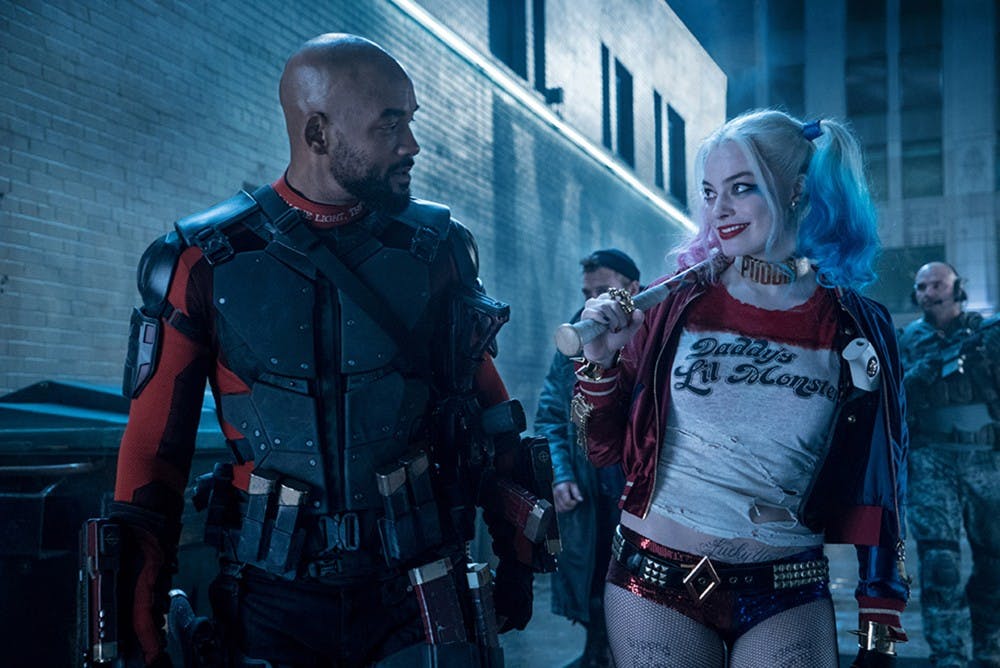One of the most anticipated movies of the summer is a part of the DC Extended Universe: “Suicide Squad.”
This comes as no surprise to anyone who has even passively paid attention to what has been in theaters in the past decade.
Comic-book movies have been dominating the silver screen for so long that they are like westerns were to Baby Boomers.
These films typically develop ways of including subtle political commentary as a means of reflecting the times, which is always welcome in summer blockbusters. But if you’re going to be so modern, shouldn’t the film also be above using outdated patriarchal tropes?
Apparently,“Suicide Squad” didn’t get the memo.
Don’t get me wrong, I enjoyed the film, and it’s probably the best DC film so far. However, there was one particular character who proved herself a disappointment to fans from start to finish.
Enter Harley Quinn.
Quinn is perhaps the single most sought-after comic book character by fans since her television debut on “Batman: The Animated Series” in 1992.
We have wanted to see Quinn in the movies ever since, and we were disappointed when she never made an appearance in Christopher Nolan’s “Dark Knight” trilogy.
So when it was announced that Margot Robbie would be portraying her in “Suicide Squad” as a main character, it’s sufficient to say we were all excited — until we saw the costume of choice.
Completely throwing away her signature jester outfit, Quinn instead decides to wear hot pants, fish stockings and a T-shirt that reads “Daddy’s Lil Monster.”
Comic book fans exploded in rage at this revelation, and some have gone so far as to reject her as Harley Quinn and instead refer to the character as “Hot Topic Barbie.” Even Robbie admitted she felt uncomfortable in the outfit.
Despite these concerns, this part didn’t bother me so much. It’s been years since Quinn has donned her classic outfit, and she has instead been wearing more revealing clothing, most notably in the “New 52” series of DC comics.
With that said, the problem is not the outfit, but how director David Ayer chose to portray the character. It’s about as empowering to women as previous roles played by Robbie in movies like “Wolf of Wall Street” and “Whiskey Tango Foxtrot.” That is to say, not at all.
The opening scene of this film shows Quinn performing erotic, burlesque gymnastics in her cell before flirting with a guard and seductively licking one of the cell bars.
Now, you could argue this is her tricking the guard into letting her out, but given that there were at least twenty other guards in the room with heavy firearms, that seems far from likely. Plus, I’m tired of hearing that excuse for lazy, juvenile writing.
She doesn’t get much more fleshed out from there. We see Quinn in several other sexualized scenes, including a camera pan-up of her legs, hips and bra while she changes and a close-up of her bending over to pick up some stolen loot.
Where’s the justification for that? Why is it important for Ayer to include close-up shots of Quinn’s breasts and butt or to have her sexually harass the guards? It seemed unnecessary and out of character.
The biggest slap in the face, however, is the film’s utterly insulting depiction of Quinn’s relationship with the Joker.
In the original comics, Quinn was always depicted as a tragic figure stuck in a hideously abusive relationship with the Joker. He was known to beat her and psychologically torture her during their time together.
However, hardly a glimpse of that is shown in “Suicide Squad.” In fact, if you never saw “Batman: The Animated Series” or read any of the comics, you would think Joker and Quinn were just DC’s take on the Bonnie and Clyde story.
This has led to many cringe-worthy “relationship goals” posts featuring the two villains on social media, which is where I draw the line.
Over-sexualization is awful enough, but romanticizing abusive relationships is just plain revolting.
I understand Quinn is not supposed to be a role model. She’s an evil psychopath who murders for sport.
But if you continue making exceptions for which women deserve fair representation, then Hollywood will only continue its patriarchal reign.
This is about all women, not just your favorites.






